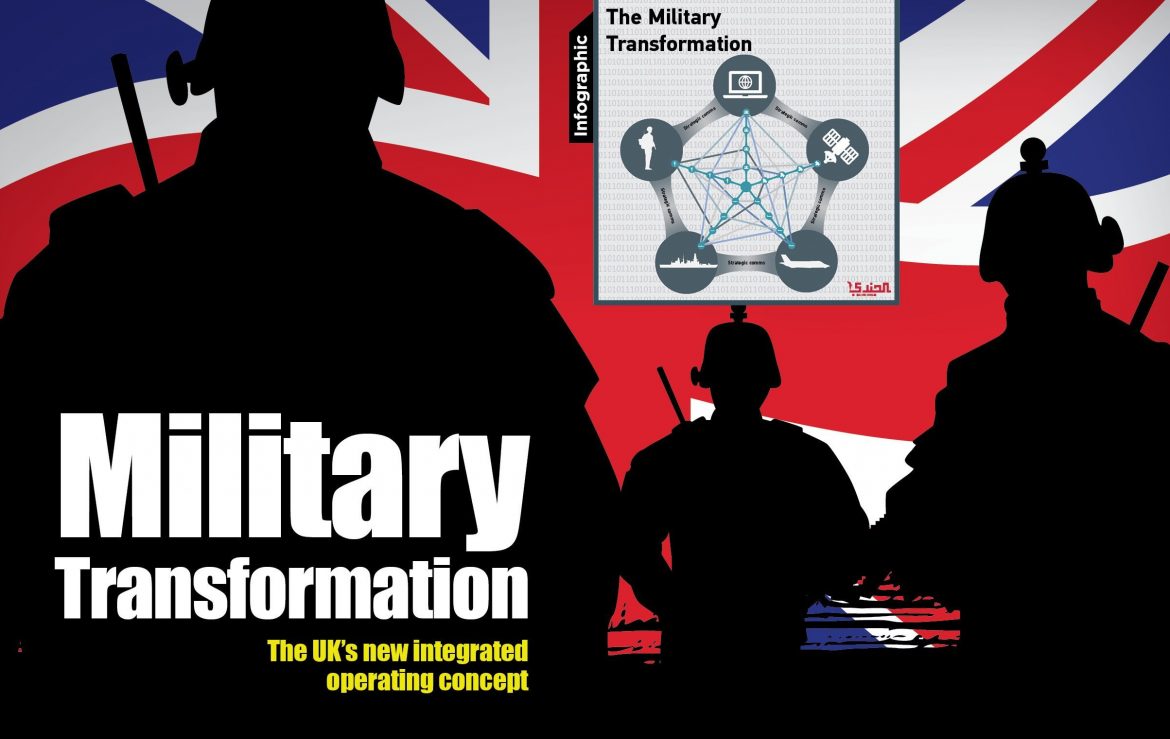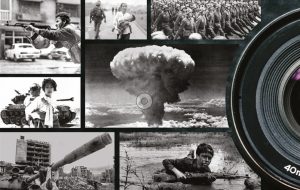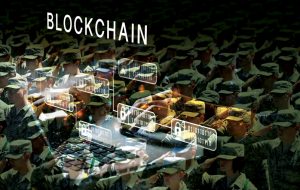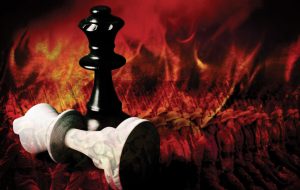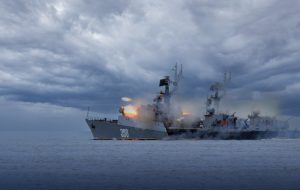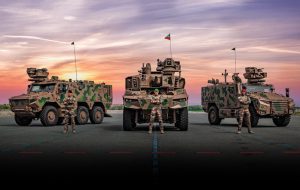The Integrated Operating Concept (IOC) represents a step-change in military thinking in the modern era. Announced online by the UK’s defence minister, Ben Wallace, and Chief of Defence Staff, General Sir Nick Carter at the end of September, the IOC promises “a new approach to the utility of armed force in an era of persistent competition and a rapidly evolving character of warfare”. The implications of the proposed new way of thinking should not be underestimated. For the UK, the Concept is heralded as “the most significant change in UK military thought in generations”. But it is also likely to have an effect way beyond the shores of the UK in giving expression to the main thrust of military thinking going forwards in the 21st century, not only in the West but further afield.
In many ways, the proposals are the natural evolution of strategizing that has been underway in military circles since the end of the Cold War. Concepts such as hybrid, asymmetric, unrestricted and information warfare have all posed challenges for military policy-makers in recent years, especially in the West. In this way, the conclusions drawn by the UK about the need for a fundamental military transformation are not illogical or particularly surprising. At the same time, they carry questions about the whether they are driven as much by economics as by geopolitical reality; and about what they mean for democracies fighting authoritarian and sub-state foes.
What is the Integrated Operating Concept (IOC)?
The IOC takes as its foundations the notion that conflict and war-fighting have been waged around an increasingly blurry boundary between war and peace. Sun Tzu’s original notion that the best way to succeed is to avoid open conflict altogether, is coming to pass very clearly in the 21st century. Recent experiences such as widespread cyber attack and manipulative disinformation; and the realisation that low-cost and easily acquired technology such as drones can outwit the most expensive and sophisticated missile or fighter-jet, are all adding up to the realisation that something needs to change. In a sense, the long-standing military dominance of NATO and its members is suddenly starting to look easily neutralised by a range of intractable factors.
The bottom line is that the West’s military foes, whether they are states such, or sub-state terrorists and militias and their regional state-backers, do not play by the same rules as Western militaries and their allies.
In response, the IOC adopts similar “whole of government” thinking to other policy areas such as counter-terrorism, in adopting a more flexible and comprehensive set of strategies and responses to the threat. Under the four pillars of Protect, Engage, Constrain, and War-fighting, the IOC suggests a broad and integrated set of responses to military threats in the future. These include greater and more aggressive use of information and electronic capabilities to disrupt, discredit and neutralise foes. They also include working in wider and deeper ways with a broader set of stakeholders and partners across militaries and business outside of established channels; and much more comprehensively integrating military capabilities across all domains than has ever been attempted before. As the Ministry of Defence document says, we have to “move beyond ‘jointery’ to integration”.
In practical terms, this will mean a number of developments in military capability. These include developing “smaller and faster” capabilities such a fast littoral naval fleets; investing more heavily in stealth technologies; developing a greater mixture of crewed, uncrewed and autonomous capabilities; and exploiting information dominance to the full in both defensive and offensive approaches
The debates and challenges
While all of this sounds eminently sensible in many ways, there are a number of questions that need to be addressed. General Sir Nick Carter notes that war is “always about politics”; but it is also about economics. Every defence review in the UK in the post-war era, including a handful conducted at the height of the Cold War, have stressed the need to cut the defence budget and particularly to target the “heavy metal” capabilities on land, sea and air.
In suggesting a strategy of greater dynamism and flexibility in military approach, the IOC also implies opportunities to scale-back on expensive military capabilities that look increasingly untenable in the modern financial environment. Plans such as those to greatly reduce the main battle tank force, and the pending decision to cancel an order of Boeing Wedgetail command-and-control aircraft, could point towards the imperative of reducing cost as much as possible. (Conversely, the IOC suggests a strong incentive to reinvigorate the UK defence industry in such areas as next-generation electronics and cyber capabilities.) Coming as it does just over a month before the periodic Comprehensive Defence Review in the UK, the IOC could offer some ideas for the government on where to wield the budgetary knife.
There could also be the perennial question about whether this spells the end of traditional land, sea and air services as we have always understood them to be. Changes to such structures have always been fraught with very difficult resistance to change among all the established services, and it will be interesting to see whether the IOC fares any better.
One could also ask the question about whether the proposed changes are driven as much by the UK’s fears of a loss of influence on the world stage following Brexit, and considering the current problems in the NATO coalition and particularly with the US’s leadership of it. Military, strategic and industrial reorientation towards a wider and deeper set of partners could reflect such anxieties in London about the post-Brexit era. With this said, it is notable that the IOC suggests maintenance of the Continuous At-Sea nuclear deterrent capability – perhaps the most archetypal relic of the Cold War – which may act as a counterbalance to potential loss of military and political influence.
Perhaps most importantly, the central notion in the IOC about the importance of “competition”, and particularly that with non-democratic military foes, seems to suggest that militaries need to start adopting some of the approaches of their enemies. The notion of full-spectrum, strategic “hybrid” warfare that links information activities with political and diplomatic activity and with kinetic military action, moves from being a threat faced, to a strategy to adopt under the IOC.
In democratic countries in particular, there are valid concerns about why such a transformation is needed. In many ways, the hybrid warfare approaches adopted by terrorists and authoritarian-state militaries threaten the very fabric of democracy by exploiting its openness, and causing it to hang back at crucial moments in accordance with its own legal doctrines and obligations. Perhaps democracies owe it to themselves to be able to strike back in more effective ways.
At the same time, however, increasing moves towards more covert, arms-length and “below the radar” activities are already raising concerns amongst civil liberties lobbies that the West is compromising its own values. The IOC’s injunction to adopt a more “assertive” military posture, and to develop more “nuanced judgements about risk” is effectively code for such techniques such as deniable Special Forces operations; kinetic strikes using unmanned vehicles; and hostile cyber activity. Many of these approaches are highly ambiguous as to their legality in international law and can lead to reputational risk for those adopting them – not just in Western democracies but across every advanced state. An RAF drone strike that killed three suspected militants in Iraq in 2017, for example, led to a heated parliamentary inquiry and debate in the UK. The government may not want to become more embroiled in such allegations of using “remote warfare” to step back from its legal and ethical obligations.
The outlook
The IOC adopts familiar language in post-Cold War military thinking, but promises to go much further than before in bringing about a fundamental transformation to 21st-century military strategy. For the UK, the combined fears of a changing level of influence and impact on the global stage following Brexit and an increasingly complicated relationship with the White House, add impetus to the logic of making these changes now.
As ever, economic considerations will also be critical. Particularly following the financial and strategic shock of the Coronavirus pandemic, the need to put into process much-discussed reorientation away from the most expensive and sophisticated military capabilities on which Western militaries and their allies have long depended for their power dominance, may now have become essential. In such circumstances, it also makes sense for a country such as the UK to try to benefit from investment in cutting-edge military technology and industry that can focus on the information-age capabilities we now require.
More widely, while the UK is saying it now, many others are clearly thinking it. It was perhaps indicative that the online launch of the IOC on 30 September was headed by an address by General David Petraeus (retired), the much-heralded architect of counter-insurgency strategy in Iraq and Afghanistan. That General Petraeus commended the proposal and its contents reflects the fact that much of what the IOC is suggesting needs to happen now, has been considered by NATO for some years, and especially since recent events in Ukraine, Syria, Libya, and on the question of how to respond to terrorist attacks in the West. The outcome of the US presidential election and the stance of the new occupant of the White House towards the NATO alliance will have a huge bearing on the future direction of military transformation. As the IOC eloquently suggests, we could be finally facing “an inflection point between the industrial age and the information age” as far as military strategy is concerned.
By: Prof. Julian Richards
(Centre for Security and Intelligence Studies (BUCSIS), University of Buckingham)


